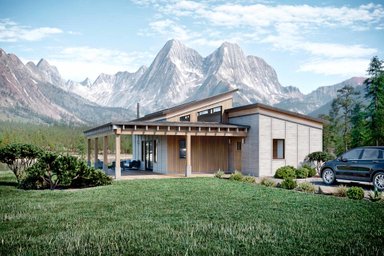Still Missing in Action
More than four years into a housing recovery and builders are still wondering when millennial buyers will show up. The conspicuous absence of these first-time buyers is holding back what might otherwise be a robust housing recovery, given how low mortgage rates have remained. Why young buyers remain missing in action monopolized discussion at a recent housing market forecast put on in by Meyers Research in a Virginia suburb of Washington D.C. Economists, market analysts, investors, and builders alike (most of them aging boomers) provide their take on why Generation Y isn’t making it to the closing table.
Cheap rent isn’t the factor it once was, that much is for sure. With rents rising, and interest rates low, the cost of renting and owning a home are just about equal in most markets today, noted Kevin Gillan, chief economist for Meyers Research, kicking off the discussion. “First-time homebuyers have been the missing piece of the housing recovery,” he said, adding that rising rents are starting to make young people examine ownership more closely. “New home sales will continue to lag until they return.”
The current generation of young Americans suffers from a variety of financial shortcomings – high debt loads, low incomes, and poor credit ratings -- that make jumping on the homeownership ladder difficult. Millennials are the only demographic cohort with more debt than savings. Gillan, who still teaches economics at Drexel, said that his students with college loans simply don’t want to take on more bank debt. “Millennials have a very different view of homeownership,” he said. “They complain that they are being hassled by banks about making student loan payments. Now they are going to double down and take out a mortgage with the bank? No way.”
High prices prevent young households from buying many new homes. The median price of a new home rose to nearly $300,000 in September as builders chased move-up and luxury buyers. It’s up 13 percent in one year. In the Washington D.C. market, it’s difficult to build new homes for young buyers in the places they want to live at prices that they can afford. The exurbs are just about the only place where affordable first-time housing pencils, and surveys show that Generation Y prefers close in locations. Buying a home may also prevent young people from living the lifestyle they cherish. “I don’t think Millennials will be homeowners for a long time,” said Rodney Montag, COE at RAM Real Estate Capital, which does land joint ventures with builders. “They are transient. They want to pick up and move at any time. I don’t think they want the burden of owning a home.”
Gen Y is “all about experience,” said Peter Martin, managing director for equity research at JMP Securities, citing the behavior of his many nieces and nephews. If they learn Google is hiring, “they will pick up tomorrow and go live with some friends in San Francisco.” Buying a home is a low priority, he says, if “they will miss out on a trip to Paris they can barely afford.”
Builders have a lot at stake in the behavior of this new generation of potential buyers. The peak of the millennial generation is reaching 31, the age when Americans typically buy a first home, according to data shared by Gillan. Over the next seven years, a wave of 1 million Americans will turn the magic age of 31, when people typically buy their first house.
Thomas Birnbaum, who heads Pulte Homes in the Washington D.C. market, believes that many in this generation may delay their decision to buy by three to five years. Today’s first-time buyers have many great apartment options, he noted. “It’s hard to pull them away” from close proximity to jobs, public transportation, and their favorite restaurants and bars. Homeownership traditionally becomes a more attractive option once people marry and have kids. But the impact of those life-changing events for today’s young households is muted by low-paying jobs and debt. Steven Alloy, president of Stanley Martin Homes, doesn’t think that getting married and having kids will be enough to drive households out of apartments. “The only driver is schools,” he said. In the meantime, many young households live in some pretty nice apartments. “These aren’t the kind of apartments our generation lived in,” said Alloy, who builds apartments under a related business entity. “Today’s Class-A apartments are better than many of the homes we build.”
The luxury-apartment dynamic creates a challenge for builders used to building affordable housing by lowering product specifications. “Even in starter homes people want the granite countertops and stainless steel appliances that they had in their apartments,” said Alan Shapiro, president of Winchester Homes. What new-home features attract young buyers? Gillan pointed to marketing studies that show their preference for tech-friendly, energy-efficient, green homes. They also are more likely than other buyers to favor contemporary designs with open floor plans and sleek finishes. Studies conducted by the Urban Land Institute also show that Gen Y buyers prefer urban environments and don’t mind sharing walls with neighbors. The panelists agreed that, to attract young buyers in high-cost markets, builders would need to turn to high-density, wood-frame construction in close-in suburban locations.
Though it wasn’t referenced at the seminar, another ULI study done earlier this year indicated that the leading edge of the generation may be leaving for the suburbs just as previous generations did. It showed that while only 26 percent of Gen Yers own a home, the percentage is much higher, 47 percent, for those 31 to 36 years old. http://uli.org/report/gen-y-housing-want-want/ In the meantime, without the full participation of first-time buyers, the housing cycle will be slower and more extended, said Martin. That’s why he’s more optimistic about the rental market – for both detached homes and apartments – than the sales market.
Boyce Thompson is the former Editorial Director of Builder Magazine, and the author of The New New Home.
More than four years into a housing recovery and builders are still wondering when millennial buyers will show up. The conspicuous absence of these first-time buyers is holding back what might otherwise be a robust housing recovery, given how low mortgage rates have remained. Why young buyers remain missing in action monopolized discussion at a recent housing market forecast put on in by Meyers Research in a Virginia suburb of Washington D.C. Economists, market analysts, investors, and builders alike (most of them aging boomers) provide their take on why Generation Y isn’t making it to the closing table.
Cheap rent isn’t the factor it once was, that much is for sure. With rents rising, and interest rates low, the cost of renting and owning a home are just about equal in most markets today, noted Kevin Gillan, chief economist for Meyers Research, kicking off the discussion. “First-time homebuyers have been the missing piece of the housing recovery,” he said, adding that rising rents are starting to make young people examine ownership more closely. “New home sales will continue to lag until they return.”
The current generation of young Americans suffers from a variety of financial shortcomings – high debt loads, low incomes, and poor credit ratings -- that make jumping on the homeownership ladder difficult. Millennials are the only demographic cohort with more debt than savings. Gillan, who still teaches economics at Drexel, said that his students with college loans simply don’t want to take on more bank debt. “Millennials have a very different view of homeownership,” he said. “They complain that they are being hassled by banks about making student loan payments. Now they are going to double down and take out a mortgage with the bank? No way.”
High prices prevent young households from buying many new homes. The median price of a new home rose to nearly $300,000 in September as builders chased move-up and luxury buyers. It’s up 13 percent in one year. In the Washington D.C. market, it’s difficult to build new homes for young buyers in the places they want to live at prices that they can afford. The exurbs are just about the only place where affordable first-time housing pencils, and surveys show that Generation Y prefers close in locations. Buying a home may also prevent young people from living the lifestyle they cherish. “I don’t think Millennials will be homeowners for a long time,” said Rodney Montag, COE at RAM Real Estate Capital, which does land joint ventures with builders. “They are transient. They want to pick up and move at any time. I don’t think they want the burden of owning a home.”
Gen Y is “all about experience,” said Peter Martin, managing director for equity research at JMP Securities, citing the behavior of his many nieces and nephews. If they learn Google is hiring, “they will pick up tomorrow and go live with some friends in San Francisco.” Buying a home is a low priority, he says, if “they will miss out on a trip to Paris they can barely afford.”
Builders have a lot at stake in the behavior of this new generation of potential buyers. The peak of the millennial generation is reaching 31, the age when Americans typically buy a first home, according to data shared by Gillan. Over the next seven years, a wave of 1 million Americans will turn the magic age of 31, when people typically buy their first house.
Thomas Birnbaum, who heads Pulte Homes in the Washington D.C. market, believes that many in this generation may delay their decision to buy by three to five years. Today’s first-time buyers have many great apartment options, he noted. “It’s hard to pull them away” from close proximity to jobs, public transportation, and their favorite restaurants and bars. Homeownership traditionally becomes a more attractive option once people marry and have kids. But the impact of those life-changing events for today’s young households is muted by low-paying jobs and debt. Steven Alloy, president of Stanley Martin Homes, doesn’t think that getting married and having kids will be enough to drive households out of apartments. “The only driver is schools,” he said. In the meantime, many young households live in some pretty nice apartments. “These aren’t the kind of apartments our generation lived in,” said Alloy, who builds apartments under a related business entity. “Today’s Class-A apartments are better than many of the homes we build.”
The luxury-apartment dynamic creates a challenge for builders used to building affordable housing by lowering product specifications. “Even in starter homes people want the granite countertops and stainless steel appliances that they had in their apartments,” said Alan Shapiro, president of Winchester Homes. What new-home features attract young buyers? Gillan pointed to marketing studies that show their preference for tech-friendly, energy-efficient, green homes. They also are more likely than other buyers to favor contemporary designs with open floor plans and sleek finishes. Studies conducted by the Urban Land Institute also show that Gen Y buyers prefer urban environments and don’t mind sharing walls with neighbors. The panelists agreed that, to attract young buyers in high-cost markets, builders would need to turn to high-density, wood-frame construction in close-in suburban locations.
Though it wasn’t referenced at the seminar, another ULI study done earlier this year indicated that the leading edge of the generation may be leaving for the suburbs just as previous generations did. It showed that while only 26 percent of Gen Yers own a home, the percentage is much higher, 47 percent, for those 31 to 36 years old. http://uli.org/report/gen-y-housing-want-want/ In the meantime, without the full participation of first-time buyers, the housing cycle will be slower and more extended, said Martin. That’s why he’s more optimistic about the rental market – for both detached homes and apartments – than the sales market.
Boyce Thompson is the former Editorial Director of Builder Magazine, and the author of The New New Home.






